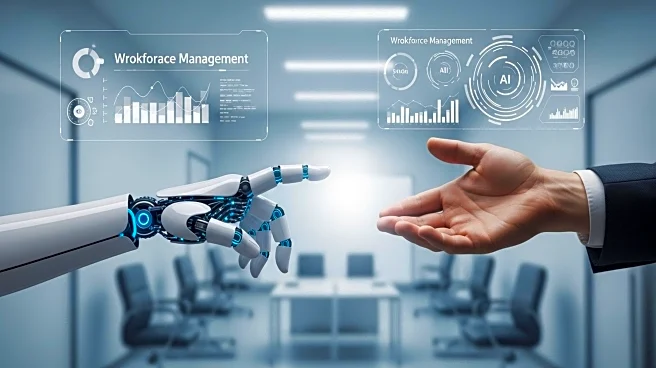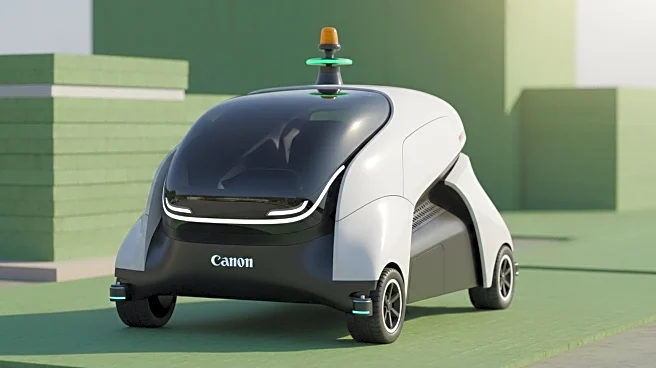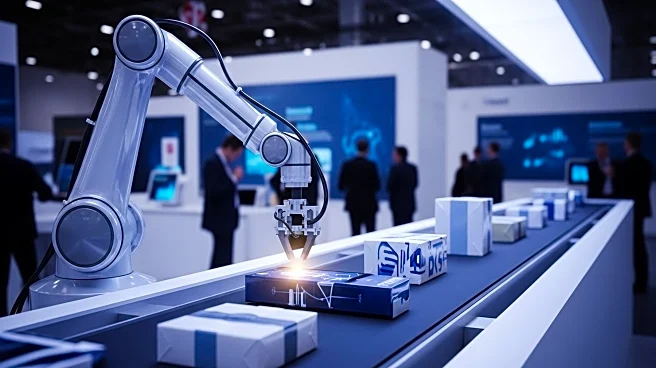What's Happening?
SAP has unveiled a new strategy focusing on the integration of artificial intelligence (AI) in human resources (HR) during its Connect conference in Las Vegas. The company aims to alleviate concerns about AI replacing jobs by promoting a collaborative approach where AI supports HR professionals. Gina Vargiu-Breuer, SAP's chief people officer, emphasized the importance of skills in the digital age, likening them to a 'new supply chain.' The strategy involves a 'skills-first approach' to workforce planning, which SAP believes will accelerate adaptability and growth. The company is also rolling out AI assistants tailored to specific roles to reduce administrative burdens and allow HR leaders to focus on strategic tasks.
Why It's Important?
The introduction of AI in HR is significant as it addresses the evolving needs of the workforce in the digital age. By focusing on skills development, SAP is positioning itself to help organizations adapt to rapid technological changes. This approach could lead to increased productivity and strategic value for businesses, as AI takes over routine tasks, allowing HR professionals to concentrate on talent management and organizational culture. The strategy also highlights the shift from traditional job roles to task-based work, which could redefine employment structures and enhance workforce flexibility.
What's Next?
SAP's strategy suggests a future where AI and human collaboration is central to workforce management. Organizations may need to invest in developing a culture that supports this integration, focusing on continuous learning and adaptability. As AI becomes more embedded in HR processes, companies might see a transformation in how they approach hiring, training, and employee development. The success of this strategy will depend on how well organizations can balance technological advancements with human-centric values, fostering an environment that encourages growth and innovation.
Beyond the Headlines
The ethical implications of AI in HR are profound, as it raises questions about privacy, data security, and the potential for bias in AI-driven decision-making. Organizations will need to ensure that AI systems are transparent and fair, maintaining trust among employees. Additionally, the cultural shift towards a skills-first approach may require significant changes in educational and training systems to prepare the workforce for new challenges. Long-term, this could lead to a more dynamic and resilient labor market, capable of adapting to future disruptions.










